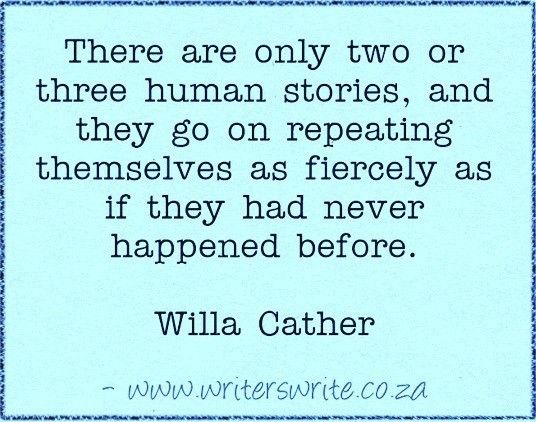Writing 2200: Deep Characterization
Now that we’re in the 2000 level “courses,”
so to speak, it’s time to work on refining our craft. This next portion of the
seminar is all about characterization.
I posted about characterization a
few weeks ago – a standalone post that covered a lot of territory. Over the
next few weeks, we’re going to take a deeper look at characterization, and also
go more slowly. Posts will be spread out in smaller chunks – this is partly for
you, but mostly for me since my writing workload is crazy right now!
First off, let’s talk about
Inspiration and Originality; chiefly, how to figure out what inspires you, why
it inspires you, and how to study literature in a way that enables you to use
that inspiration to come up with your own original characters and plots.
Inspiration and Originality
There’s a phrase that I like to use:
“Every story has already been told, and Shakespeare told them all better than
the rest of us.” Yes, I do love Shakespeare – serious Shakespeare, and dick-joke
Shakespeare – but the real point is: I don’t think there’s any such thing as a “new”
story anymore. Fiction is rooted in fact. Human fact. Stories are about people
struggling, people triumphing, people falling in love, and people doing
unspeakable thing. Most writers are working off a Classic literary canon, and
we’re all trying to tell our own stories amidst other stories that might sound
like ours. There will be inevitable similarities. There will be homages and
tributes; there will be rewrites, retellings, and reimaginings. There’s every
chance that someone on the other side of the world is right now writing a story
eerily similar to yours, and neither of you know it. And then there are pop
culture icons that are modern versions of beloved Classics…the original
fanfiction, don’t you know. The best thing any writer can do is read widely,
work hard, and focus on your own story.
I want to take a brief moment,
since I fussed about it on my IG story this weekend, to acknowledge that sometimes…it’s
not a coincidence. There are predatory writers out there. The ones who think
publishing books is a great way to get rich quick. Who scan the market, see
what’s selling, and pick authors to outright copy from. These people are not paying
homage to a favorite author, nor lovingly referencing the Classics. These
people are outright stealing; sometimes it’s a simple matter of using another
author’s ideas – anything from plot lines, to archetypes – to literal
copy/pasting and name-swapping on entire scenes. Like I said: predatory. Malicious.
We’re not going to waste another
second on that sort of thing.
Then there’s benign copying. It’s
unconscious. It’s not malicious, and we’ve all done it. It’s how we learn how
to write. It’s how we go from attempting our first stories to finding our own
literary voices. When we start out, we mimic the styles of writers we revere, and
eventually, we start to understand the ins and outs of execution, and can
accomplish the same thing using our own unique characters, cast in our own
unique story.
Though I do believe there is such
a thing as a natural propensity for writing, no one starts out with his or her own
confident, original style. That comes through lots of reading, lots of
practice, and lots of hard work and dedication. We begin to learn our strengths
and how to use them, and the more we read and study literature, the more we understand
what really makes a character lovable, and a book readable.
In the next few posts, we’ll take
an in-depth look at the characters we love, and why we love them, and hopefully
you can pick up some ideas for your own work. I’ll walk you through some of my
own early, embarrassing writing attempts, and share what I’ve learned along the
way.


No comments:
Post a Comment